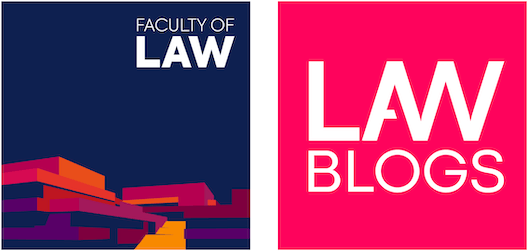Tarunabh Khaitan on Killing the Constitution with a Thousand Cuts
On 22 January 2019, the South Asian Law Discussion Group hosted Dr Tarunabh Khaitan, Associate Professor of Law, Universities of Oxford & Melbourne, to present his paper titled “Killing the Constitution with a Thousand Cuts”. The primary discussant was Prof Faisal Devji, Professor of Indian History, University of Oxford. Khaitan adopted a scholarly method to consider whether actions of the present ruling government in India threaten the foundations of Indian democracy.
Posted:
Time to read:
He first tried to place present-day India in a global context by referring to the paradigms of declining democracies in Hungary, Poland and Turkey. In the latter examples, one administration was successful in undermining all institutional checks on the government, whereas this has not happened in India yet – not for want of trying, but because of India’s robust history and culture of democracy. At the same time, India’s government displays characteristic features of modern-day authoritarianism. First, there is no full-frontal attack on democracy through the use of military force. Instead, there are a number of systemic and simultaneous micro-assaults on democracy. Secondly, the end-goal of the regime is not to establish a full-blown autocracy, but to create a compromised democracy. The constitutional structure is changed in such a way that the ruling party is entrenched therein, and it becomes difficult to vote it out. Thirdly, the regime wants to be perceived as being compliant with the rule of law.
Before exploring how India’s democracy stands compromised today, he set out what can be regarded as the democratic essentials of a constitutional framework. The first is Vertical/ Electoral Accountability, which involves making the executive accountable to the people through free and fair elections. The second is Institutional/ Horizontal Accountability, which includes a vast array of institutions that survive governments, such as the Election Commission, Auditor General, Public Prosecutors, etc. They are called “fourth branch institutions”. Authoritarian governments always question the efficiency and the unelected nature of these institutions. The third and final essential is Diagonal/ Discursive Accountability, which involves sustaining non-State institutions such as NGOs, universities, media, etc. Authoritarians undermine these institutions as well.
Khaitan then turned to the question of whether the Modi government in India undermined these three democratic essentials since it took over in 2014. He categorized various reported government initiatives under these three heads of accountability and was careful to point out the extent to which each of these initiatives had an impact on Indian democracy: some succeeded in undermining it, some normalized undermining it, whereas others were merely tested, to see how they are perceived.
Electoral accountability was undermined through initiatives like simultaneous elections (which are bound to decimate regional parties and representation), campaign finance regulations that permit foreign funding for political parties retrospectively (which benefits the ruling party primarily, since it is largely funded by North American diaspora), the National Register of Citizens (which leaves millions citizenship-less), the Citizenship Bill (which leaves Muslim migrants citizenship-less), among others.
Institutional accountability was undermined through actions like the BJP-appointed Speaker of the Lok Sabha refusing to recognize a leader of opposition (OL) despite the OL’s crucial role in appointing fourth branch institutions; undermining bicameralism by introducing policies like the Aadhaar (affecting the right to privacy) by way of money bills that need only the approval of the Lok Sabha where the ruling party enjoys majority; undermining federalism through puppet-Governors in Delhi and Pondicherry, etc. Fourth branch institutions were directly undermined through actions like refusing to appoint an Anti-Corruption Ombudsperson (despite the ruling party having won the 2014 elections on the campaign promise of rooting out corruption); unceremoniously throwing out the head of the Central Bureau of Investigation; introducing a bill to make the Central Information Commission a “governmental department” ensuring executive influence on an independent body, etc.
Discursive accountability was also undermined when members of the ruling party accused students of a premier Indian university of sedition; prohibited foreign funding of NGOs, etc.
On the basis of these findings, he concluded that India is a compromised democracy today.
The primary discussant, Devji, reflected on the social power dynamics that underlie the constitutional issues discussed by Khaitan. Unlike in China where social mobilization is against the State, in India, the mobilization seems to be in favour of the government. Groups like the RSS have a strong voice in consolidating this social power, and their connection with the BJP has almost led to the creation of a hybrid-State. He wondered, however, whether the BJP’s actions indicate a move towards a Western-style two-party system where data and surveillance matter more, like in Europe – and if this vision is contradictory to the social power base that the BJP relies on.
The session ended with an audience member asking if this process of compromising a democracy is unique to the current government, considering the previous government also faced similar allegations. While Khaitan agreed that some actions of the BJP do have a precedent, he drew a distinction on the basis that actions of the current government hit at constitutional civility and constitutional conventions, and are systematic, unlike actions of the previous ruling party.
Share:

